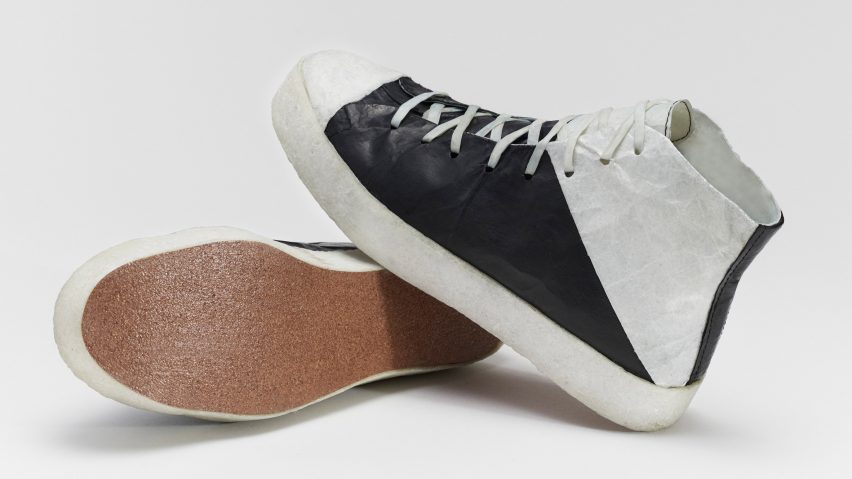
Public School creates "backyard compostable" sneaker from kombucha waste
New York streetwear label Public School has collaborated with material scientist Theanne Schiros to create a pair of biofabricated trainers using a leather alternative grown by microbes.
Almost the entire trainer, including the upper, midsole and laces, was produced from a symbiotic culture of bacteria and yeast (SCOBY), which is a key ingredient in making kombucha tea.
Through fermentation, the SCOBY creates a leather substitute that has up to a 97 per cent lower carbon footprint than synthetic polyurethane (PU) leather, according to Schiros.
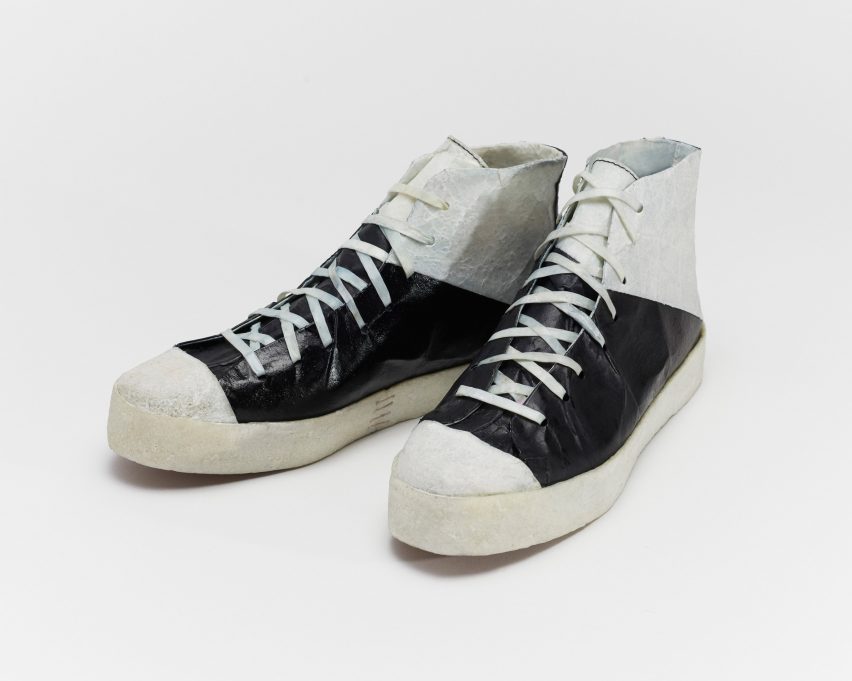
The material scientist also found that while the bio-leather has a lifespan of several years, it remains "backyard compostable" and will break down over a couple of months in a domestic compost heap.
"After 60 days outdoors in soil, the bio-leather samples lost over 70 per cent of their mass, broken down by naturally occurring microorganisms to return as nutrients for a healthy ecosystem," Schiros told Dezeen.
"Enzymes produced by soil microbes break down the nanocellulose. Unless buried in a microbe-rich environment, the bio-leather maintains its durability and performance aside from normal wear and tear, comparable to canvas and leather."
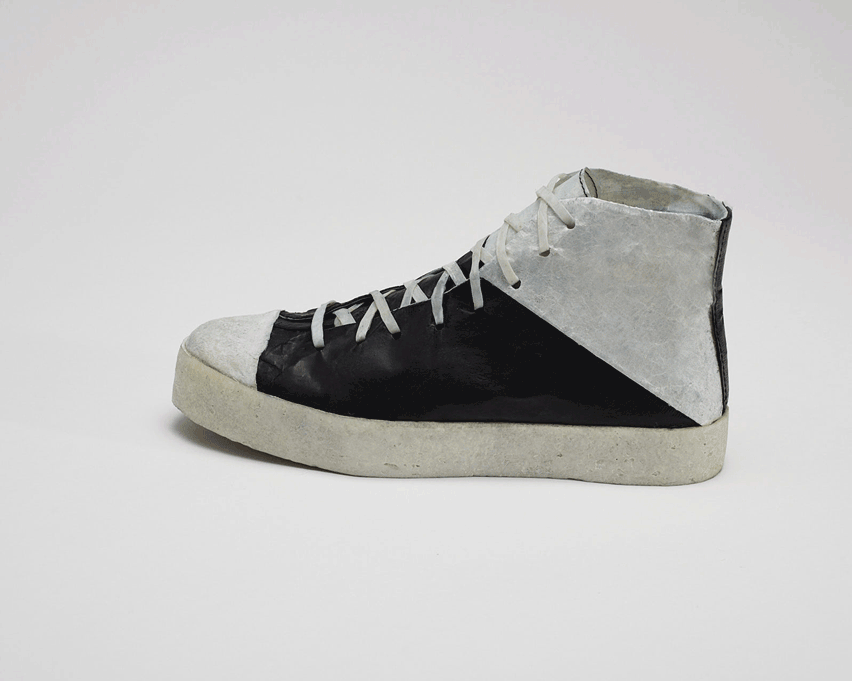
Schiros originally created the leather substitute in scientific partnership with researchers from Columbia University's Materials Research Science and Engineering Center.
As part of the Slow Factory Foundation's One X One incubator, she was paired with Public School founders Dao-Yi Chow and Maxwell Osborne to turn the experimental material into a real, desirable product.
"The aim was to create something that looked great and could communicate that through collaboration – with nature and each other – we can create high performance, degradable products with a circular lifecycle," Schiros explained.
"We chose sneakers because they are so universal and really challenging to make biodegradable because of the durability required and the number of different components."
The trainer's leather was biofabricated, meaning it was grown through natural processes. In this case, Schiros made use of waste SCOBY from local kombucha brewery Om Champagne Tea in Westchester County, New York.
The SCOBY is placed into a base of sweetened tea, where it turns the sugar into bacterial nanocellulose (BNC) as part of the fermentation process.
BNC has higher elasticity and strength than the cellulose that is commonly derived from wood pulp or cotton and is further processed using a plant-based tanning and dyeing process to create the desired leather-like aesthetic and mechanical properties.
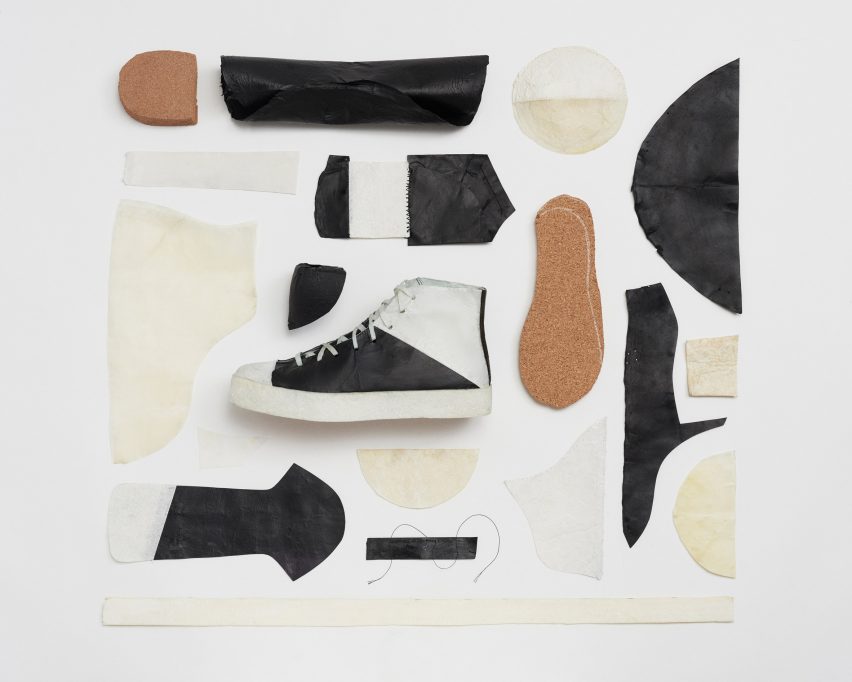
Public School wanted part of the shoe to be a deep, opaque black, which is achieved by combining indigo pigment, derived from the leaves of the titular shrub, with a binder of fresh soy milk.
Alternatively, it can also be over-dyed with myrobalan – an ancient dye from the seeds of the myrobalan tree – in a logwood dye bath created from the bark of the acacia tree.
The material is dried in a mould, removing the textile waste associated with traditional pattern cutting. From here, Brooklyn-based shoemaker Anne Marika Verploegh Chassé assembles the trainer using traditional leather moulding techniques.
A cork sheet was used for the sole.
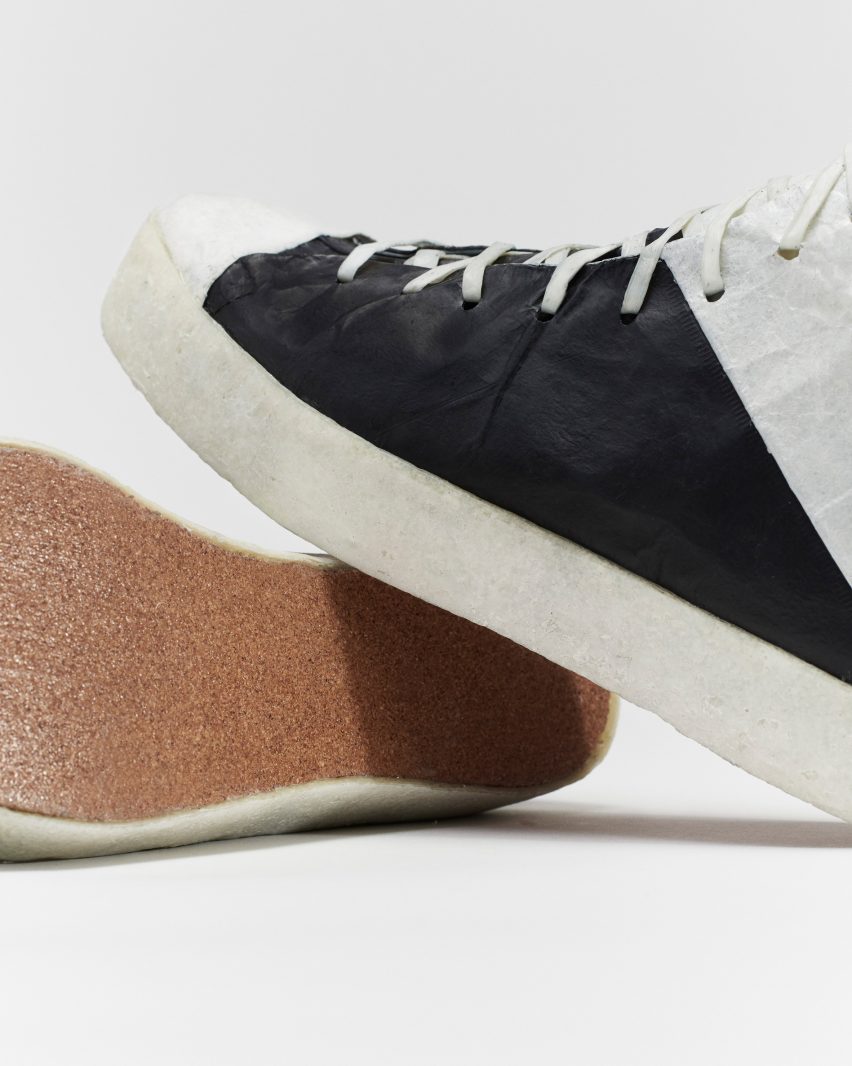
"Microbes spun the material, plants and minerals coloured and tanned it, and humans designed and constructed sneakers from it," Schiros said.
"By harnessing nature's strategy of using microbes to build up and break down rapidly renewable performance materials and incorporating waste-to-resource strategies, we can engineer bio-textiles that can displace extractive, petroleum-based textiles and toxic dyeing and processing."
According to the material scientist, this same process could be scaled up for commercial production.
"Industrial fermentation is already the basis of many of our high-value products, from pharmaceuticals to beer, wine, sourdough and kombucha," she explained.
The One X One incubator is a cross-disciplinary programme that pairs high-profile designers with sustainability innovators, to find ways of mitigating the environmental impact of the fashion industry.
So far, the project has also seen Phillip Lim work with industrial designer Charlotte McCurdy to create a petroleum-free dress covered in algae bioplastic sequins.
Photography is courtesy of Jon Brown.